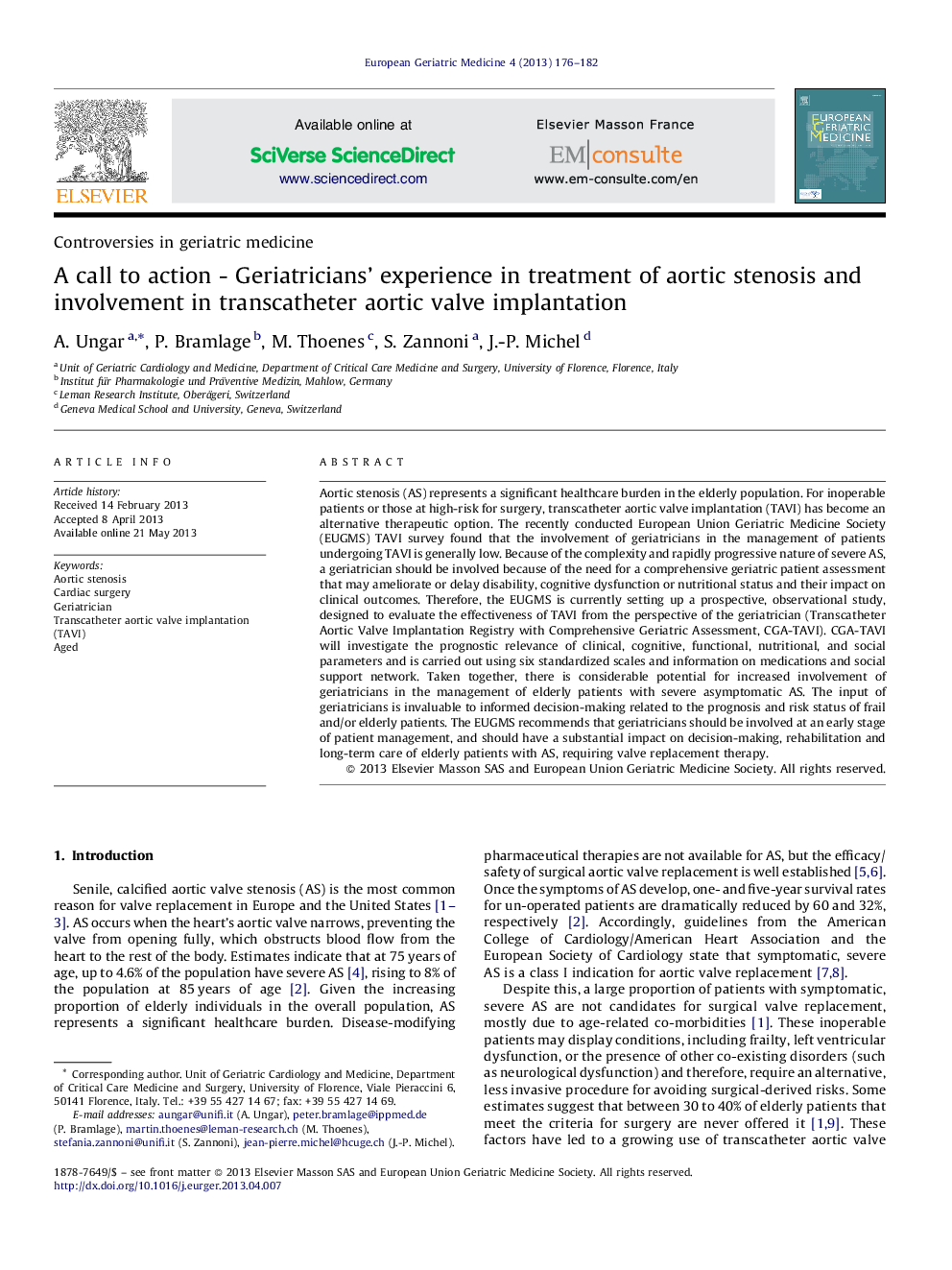| Article ID | Journal | Published Year | Pages | File Type |
|---|---|---|---|---|
| 3323988 | European Geriatric Medicine | 2013 | 7 Pages |
Aortic stenosis (AS) represents a significant healthcare burden in the elderly population. For inoperable patients or those at high-risk for surgery, transcatheter aortic valve implantation (TAVI) has become an alternative therapeutic option. The recently conducted European Union Geriatric Medicine Society (EUGMS) TAVI survey found that the involvement of geriatricians in the management of patients undergoing TAVI is generally low. Because of the complexity and rapidly progressive nature of severe AS, a geriatrician should be involved because of the need for a comprehensive geriatric patient assessment that may ameliorate or delay disability, cognitive dysfunction or nutritional status and their impact on clinical outcomes. Therefore, the EUGMS is currently setting up a prospective, observational study, designed to evaluate the effectiveness of TAVI from the perspective of the geriatrician (Transcatheter Aortic Valve Implantation Registry with Comprehensive Geriatric Assessment, CGA-TAVI). CGA-TAVI will investigate the prognostic relevance of clinical, cognitive, functional, nutritional, and social parameters and is carried out using six standardized scales and information on medications and social support network. Taken together, there is considerable potential for increased involvement of geriatricians in the management of elderly patients with severe asymptomatic AS. The input of geriatricians is invaluable to informed decision-making related to the prognosis and risk status of frail and/or elderly patients. The EUGMS recommends that geriatricians should be involved at an early stage of patient management, and should have a substantial impact on decision-making, rehabilitation and long-term care of elderly patients with AS, requiring valve replacement therapy.
